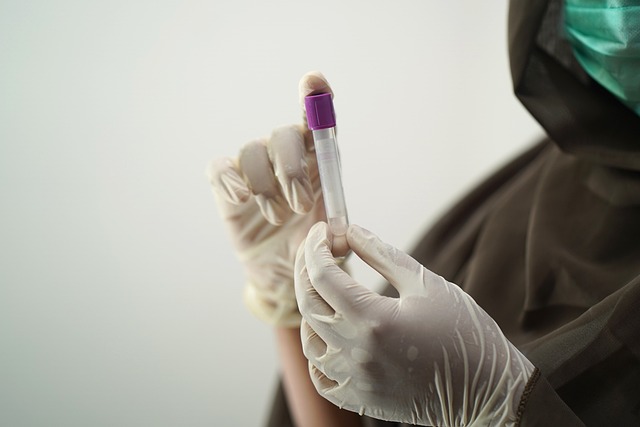The liver plays a crucial role beyond detoxification and bile production, as it also processes testosterone, a key male sex hormone. The liver's enzymes modify testosterone through sulfation and glucuronidation, preparing it for circulation. This process is vital for maintaining hormonal balance, as disturbances can lead to health issues such as low testosterone levels, which may manifest in symptoms like reduced libido and energy. Medical professionals rely on the Testosterone Blood Test UK to diagnose and monitor these conditions, as the test provides an accurate measure of testosterone levels, indirectly reflecting liver health. It is a fundamental tool for detecting hormonal imbalances, assessing liver function, and managing diseases like hypogonadism, as well as for identifying various health risks and conditions related to testosterone levels. Accurate interpretation of these tests requires consideration of both clinical context and laboratory reference ranges to ensure correct diagnosis and effective treatment strategies, ultimately contributing to superior patient care in the UK healthcare system. The Testosterone Blood Test UK is indispensable for a comprehensive understanding of hormonal regulation and its impact on overall health.
navigating the complexities of liver health and hormonal balance, medical professionals have a pivotal role in interpreting liver function tests, particularly those involving testosterone levels. This article delves into the intricacies of liver function assessment, with a focus on the testosterone blood test within the UK context. We will explore the critical aspects of understanding how testosterone impacts men’s health, the standardized process for conducting this test in the UK, and the interpretation of its outcomes. Enhanced awareness of these factors is essential for healthcare providers to make informed decisions regarding patient care. Join us as we dissect the significance of liver function tests and the role of testosterone within this vital medical domain.
- Understanding Liver Function and the Role of Testosterone in Men
- The Process and Significance of a Testosterone Blood Test in the UK
- Interpreting Results: What Do Elevated or Low Testosterone Levels Indicate?
Understanding Liver Function and the Role of Testosterone in Men

The liver is a pivotal organ for maintaining overall health, with its functions extending beyond mere detoxification and bile production. It plays a crucial role in metabolism and the regulation of various hormones, including testosterone in men. Testosterone, primarily synthesized in the testes, also undergoes significant transformation within the liver through processes such as sulfation and glucuronidation, which prepare it for release into the bloodstream. Understanding liver function is essential for medical professionals, as impairment in these processes can lead to hormonal imbalances, including reduced testosterone levels. In men, low testosterone can manifest as a variety of symptoms ranging from decreased libido and energy levels to more severe health issues. Consequently, advanced liver function tests are instrumental in diagnosing and monitoring conditions that may affect testosterone production and metabolism. These tests, including the Testosterone Blood Test UK, provide clinicians with precise measurements of testosterone levels, enabling them to assess liver health indirectly. This information is vital for early intervention and effective management of hormonal disorders in men, which underscores the importance of a thorough understanding of both liver function and the interplay between the liver and testosterone metabolism. Medical professionals must leverage these tests to ensure accurate diagnosis and optimal patient care.
The Process and Significance of a Testosterone Blood Test in the UK

In the United Kingdom, the process of assessing testosterone levels in blood tests is a critical component of diagnosing and managing a variety of conditions, particularly those related to hormonal imbalances. The Testosterone Blood Test UK involves drawing blood from a patient’s vein, typically from the arm or the back of the hand. The sample is then sent to a laboratory equipped with sophisticated endocrinological assays capable of accurately measuring the concentration of testosterone in the bloodstream. This hormone, primarily produced in the testes and to a lesser extent in the adrenal glands, plays a pivotal role in maintaining secondary sexual characteristics in males, as well as contributing to overall health and well-being. For men, optimal testosterone levels are essential for libido, sperm production, muscle mass, and bone density maintenance. In women, testosterone also has important roles, albeit at much lower levels, influencing libido and reproductive function.
The significance of the Testosterone Blood Test UK in medical practice cannot be overstated. It serves as a diagnostic tool for conditions such as hypogonadism, a state where the body does not produce enough testosterone. This condition can lead to various symptoms, including fatigue, decreased libido, and altered mood. The test is also instrumental in monitoring the effectiveness of hormone replacement therapy (HRT) in patients with known deficiencies. Furthermore, it can be a valuable indicator for a range of other health issues, such as cardiovascular risk assessment, metabolic syndrome, and even certain types of cancer. The accurate measurement of testosterone levels enables healthcare professionals to tailor their approach to each patient’s unique needs, thereby improving the efficacy of treatment plans and patient outcomes in the UK healthcare system.
Interpreting Results: What Do Elevated or Low Testosterone Levels Indicate?

When interpreting testosterone levels obtained from a testosterone blood test in the UK, medical professionals must consider the clinical context and the reference ranges specific to the laboratory conducting the analysis. Elevated testosterone levels can sometimes indicate conditions such as polycythemia, certain types of tumors, or the administration of exogenous androgens. Conversely, low testosterone, or hypogonadism, may be indicative of a variety of underlying health issues, including genetic disorders, chronic illnesses like kidney or liver disease, or hormonal imbalances. The testosterone blood test UK is a critical diagnostic tool that can reveal insights into the body’s androgen balance and its impact on physiological functions. It is essential for healthcare providers to integrate these findings with patient history, symptoms, and other clinical data to accurately diagnose and manage conditions related to testosterone deficiency or excess. This integration of biochemical information with a holistic approach ensures that patients receive comprehensive care tailored to their unique health profile. Understanding the implications of testosterone levels is not only vital for diagnosing and treating androgen-related disorders but also for optimizing overall patient well-being and health outcomes.
In conclusion, the advanced liver function test, specifically the Testosterone Blood Test in the UK, serves as a critical tool for medical professionals to assess male health. By understanding liver function and its interplay with testosterone levels, healthcare providers can effectively interpret results, whether they indicate high or low testosterone, thereby enabling personalized treatment plans and improved patient outcomes. The process of conducting a Testosterone Blood Test is both straightforward and significant, offering valuable insights into an individual’s overall well-being. As such, this test remains indispensable in the UK’s healthcare system, reflecting the ongoing commitment to precision medicine and patient care.
